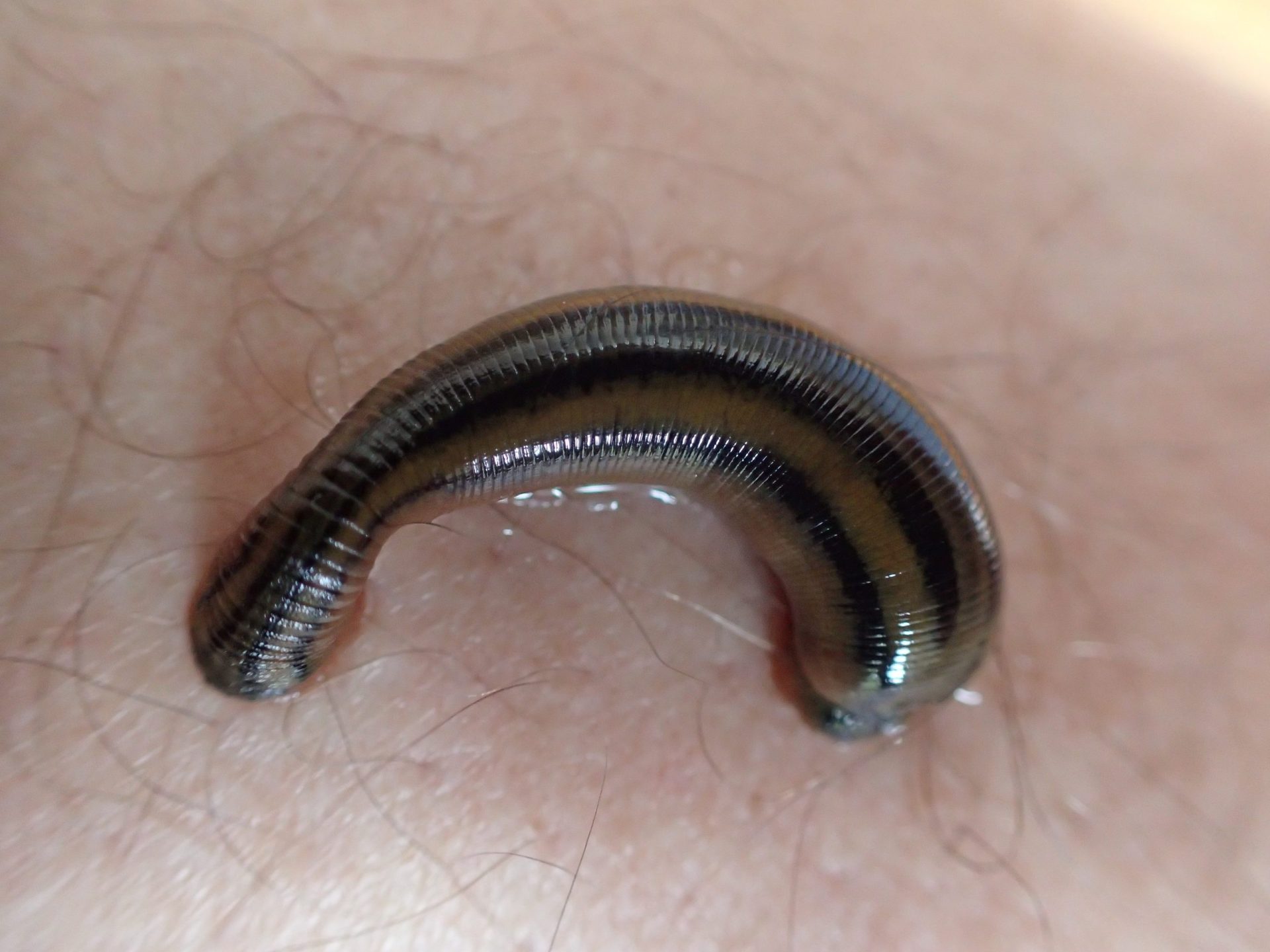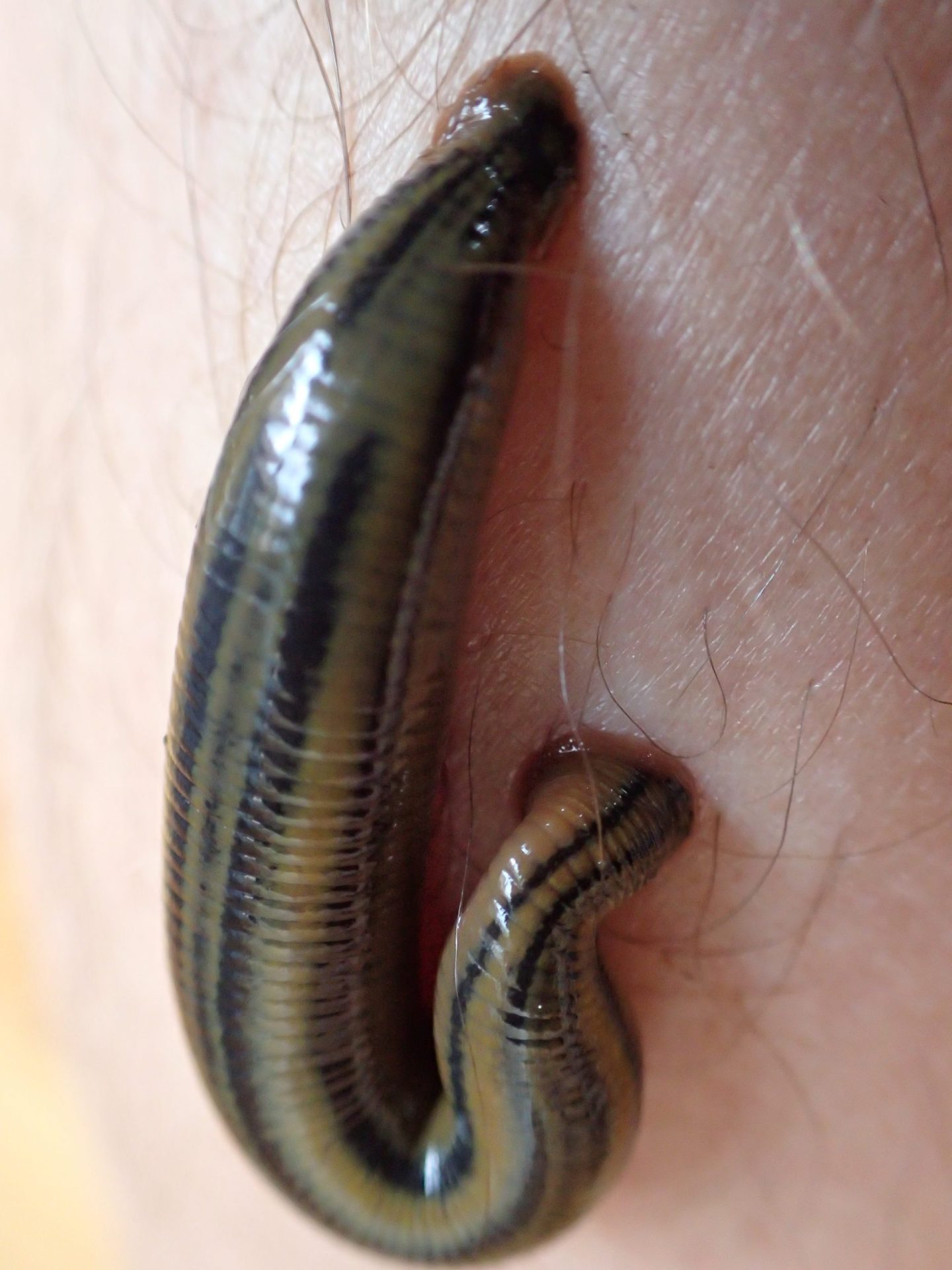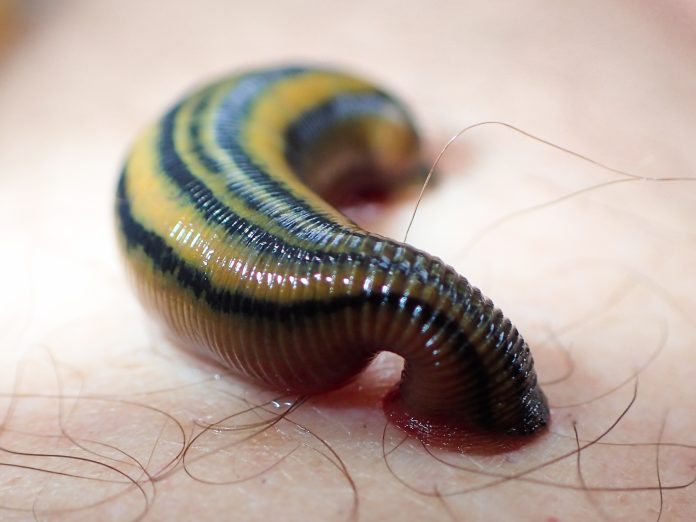If you need to get rid of a leech, give it your credit card not a lick of salt, learns Amy Wight….
Leech activity continues to grow as La Niña forges on – the high humidity and heavy rainfall leading residents to report their arrival into kitchen sinks, skylights and backyards. While the thirsty blood suckers have always been present in our freshwater streams and low lying bushland, they’re now invading much closer to home.
Long-time Allambie resident Dani Lombard said in over a decade in her home she had never once seen a leech until now.

“We’ve lived on our property for over 10 years, and we’ve never seen a leech… We’re in the Allambie/Manly Vale area [and] we don’t really back onto bush”, Ms Lombard tells the Manly Observer.
“They’ve been everywhere in our backyard, even on our dogs’ paws… We notice them when the dog comes into the house and we see the blood,” she says. “My daughter even got one from [the local] school on her ankle”.
“They aren’t dangerous or anything just really gross,” she says.
Balgowlah’s Elisa Elwin captured one popping in via her kitchen sink the other day.
“Seriously leeches are thriving here in Balgowlah… All neighbours and their dogs are dealing with the leech population explosion… I got one yesterday from taking out the bins [and] it was on the back of my hand when I came inside to wash them”.
Leeches are sanguivorous creatures meaning they suck on warm blooded animals – like humans and pets – and can consume up to 10 times their own body weight. One meal can last them several months as it takes so long for them to digest.
Professor Alexander Maier from the Australian National University spoke with the Manly Observer to provide some expert advice on leeches.

“Until about the mid 1800’s leeches were the aspirin of that time. The consumption of leeches was at four a day in France when you were sick. Even today in Germany you can get them over the counter at pharmacies as they’re still a registered drug. These days they’re commonly used in traditional medicine for example, cosmetic surgery for victims of burns or skin transplants, as their saliva prevents scar tissue by bringing blood to the skins surface”.
“There are over 200 different substances in their saliva. This includes hirudin which is an anticoagulant that prevents blood clots… So avoid using that supposed salt trick as it can encourage them to regurgitate the contents of their stomach into the wound. It’s best to use a credit card and scrape them off,” he says.
“I have leeches as pets at home, they’re completely underappreciated. They’re the ideal pet. Only have to feed them every 6-12 months and very happy in their little aquarium. They sense the oxygen pressure to note the weather too. So when the pressure drops they crawl out of the water”.
This goes some way to explaining why leeches are significantly more prevalent lately, given the low pressure systems that keep hitting our shores. The rain is bringing these critters up out of the ground or away from their aquatic homes into high human traffic areas, allowing them to attach and come home with us.

Freshwater resident Maria Erasmus shares her experience with how easy it is for these blood suckers to hitch a ride inside.
“I was out fixing the gutters the other day, got inside and found three on my feet and thought I’d better take a bath, found two more, so I had five on me. Then we found another one in the kitchen, one in the bathroom, and one coming down my skylight. They are everywhere!”
Professor Maier advises where there are some there will be many.
“If these leeches are adults they will invariably find a suitable damp spot in the garden to lay their eggs and suddenly you have a colony of leeches in your backyard”, he says.
Looks like we might have some new pets.



